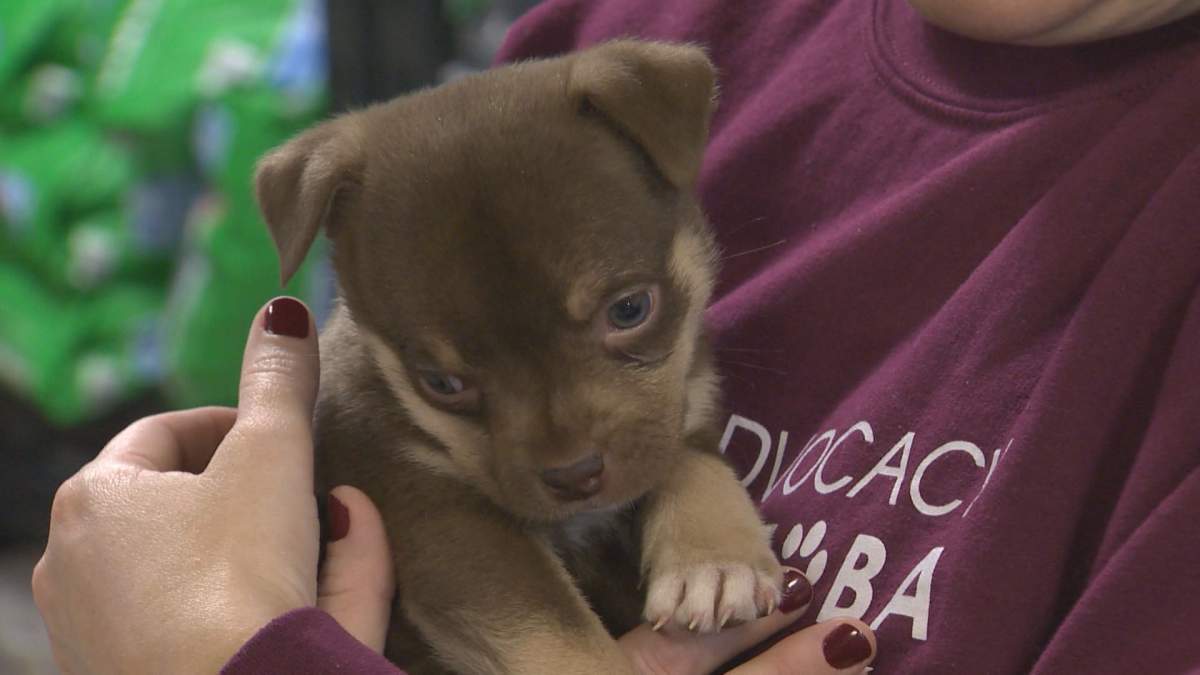In less than a decade, a non-profit organization that was set up to make a difference for stray dogs and cats finally attained charity status.

It’s a status that, for the Manitoba organization, could become a gamechanger, as donations are key to running the entire operation.
K9 Advocacy Manitoba started in 2015 by Jasmine Colucci, a nurse working in First Nations communities. Roughly 3,000 dogs and cats are brought in every year from at least 30 communities across the province and even Nunavut.
Once an animal is brought in, it sees a vet, gets its vaccine shots and treatments, and undergoes a mandatory quarantine period. In getting adopted, many end up even leaving Manitoba for other homes.
The charity’s co-director, Chelsea Kork, told Global News Morning that the process of enabling animals to find a forever home isn’t limited to Manitoba.
“It comes down to supply and demand. There (are) just too many animals in Manitoba and not enough people,” she said. “If I can send animals to other provinces, the big ones (being) B.C. and Ontario, and they end up getting adopted right away (it) works for us. We can bring in more.”

Get breaking National news
The process, however, isn’t cheap. According to Kork, the biggest expense incurred by the charity is vetting, costing K9 Advocacy about $350,000 a year. The number is coupled with other expenses, including travel costs.
Together, running on donations does not make it easy for the company, Kork said. Obtaining a charitable status in November of last year meant the organization could take a step forward. The federal government defines a registered charity as being able to issue official donation receipts, which can make it easier to recruit donors.
“(It) took us almost a year of paperwork, lawyers, accountants, (and) financial advisors. But we finally got it,” Kork said.
Elsie Pounder, a volunteer with the organization since 2020, said she ended up fostering a puppy to make her “Christmas a little more happy.” Three years later, she’s still fostering animals.
“I found out what the poor dogs go through. What they need is love and care,” Pounder said. “It makes me very happy whenever (someone) adopts them and keeps in touch with me. It’s great to see how happy the dog is.”
— with files from Global’s Gabrielle Marchand













Comments
Want to discuss? Please read our Commenting Policy first.